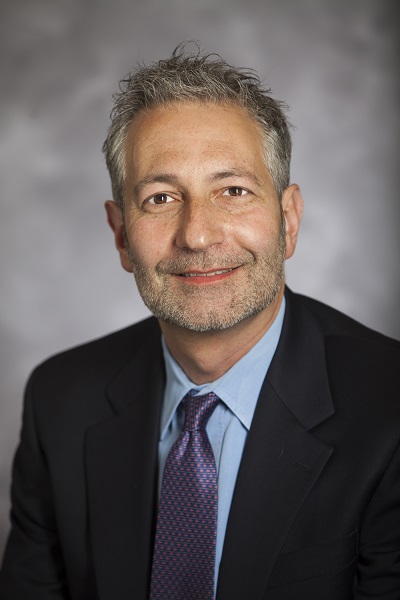H. Jean Khoury, MD, a beloved clinician and physician-scientist, died recently at age 50. Colleagues, trainees, and innumerable patients join his family and friends in mourning this profound loss.
The focus of Dr. Khoury’s professional work was hematologic malignancies, including chronic myeloid leukemia, acute leukemias, and myelodysplastic syndromes, and he was a prolific author and clinical investigator. He served as Director of the Division of Hematology at the Winship Cancer Center at Emory University and he was Professor of Medicine and the inaugural incumbent of the R. Randall Collins Chair in Oncology.
In many ways, Jean was a man of the world. He was born in Beirut, Lebanon, received his medical degree in Brussels, Belgium, served a residency in internal medicine in Savannah, Georgia, and completed a fellowship in hematology-oncology at Washington University in St. Louis. He was recruited from the faculty of Washington University to direct the leukemia program at the Emory School of Medicine.
I had known Dr. Khoury’s name and stellar reputation for years through our mutual interest in leukemia. However, it was through activities at ASH that I had the privilege and pleasure of befriending Jean. For years we served together on the ASH Committee on Government Affairs, and it was in that setting that I first got to know the man behind that reputation. In person, Jean was tall, dark, and handsome with piercing eyes and a warm smile. Coupled with his lightly French-tinged accent, he seemed to be better suited for a café in Nice than a convention center in Orlando. As our friendship grew, we made a point of getting together on the sidelines of meetings to catch up on our lives. I called him after he cycled off the Government Affairs Committee to tell him that the meetings didn’t feel the same without him and that I missed him.
We touched base periodically, and in one of those calls I told him of my wife’s near-fatal skiing accident. After attempting to allay my fears and cheering me up, he sheepishly told me that he had some news of his own. Despite having no apparent risk factors, he had been diagnosed with esophageal cancer. This revelation led to long conversations in which we shared the unpleasant reality of being on the “wrong” side of the chemotherapy IV pole. Jean was determined to fight hard, and fight he did. He reported that he managed chemotherapy and radiation relatively well, but the subsequent surgery was a bear. Despite all of that treatment, he made a point of returning to work as he found salve in his daily professional activities. Not long after, I learned that Jean had died.
I miss this warm, caring, talented, and wise man. The loss of such a mensch for his beloved family and many friends is profound. However, I am comforted by knowing that his legacy lives on in the many lives that he saved, the patients that he comforted, his enduring scientific contributions to hematologic disorders, and the many trainees that he mentored.
Photo Credit: Kay Hinton, Emory University

